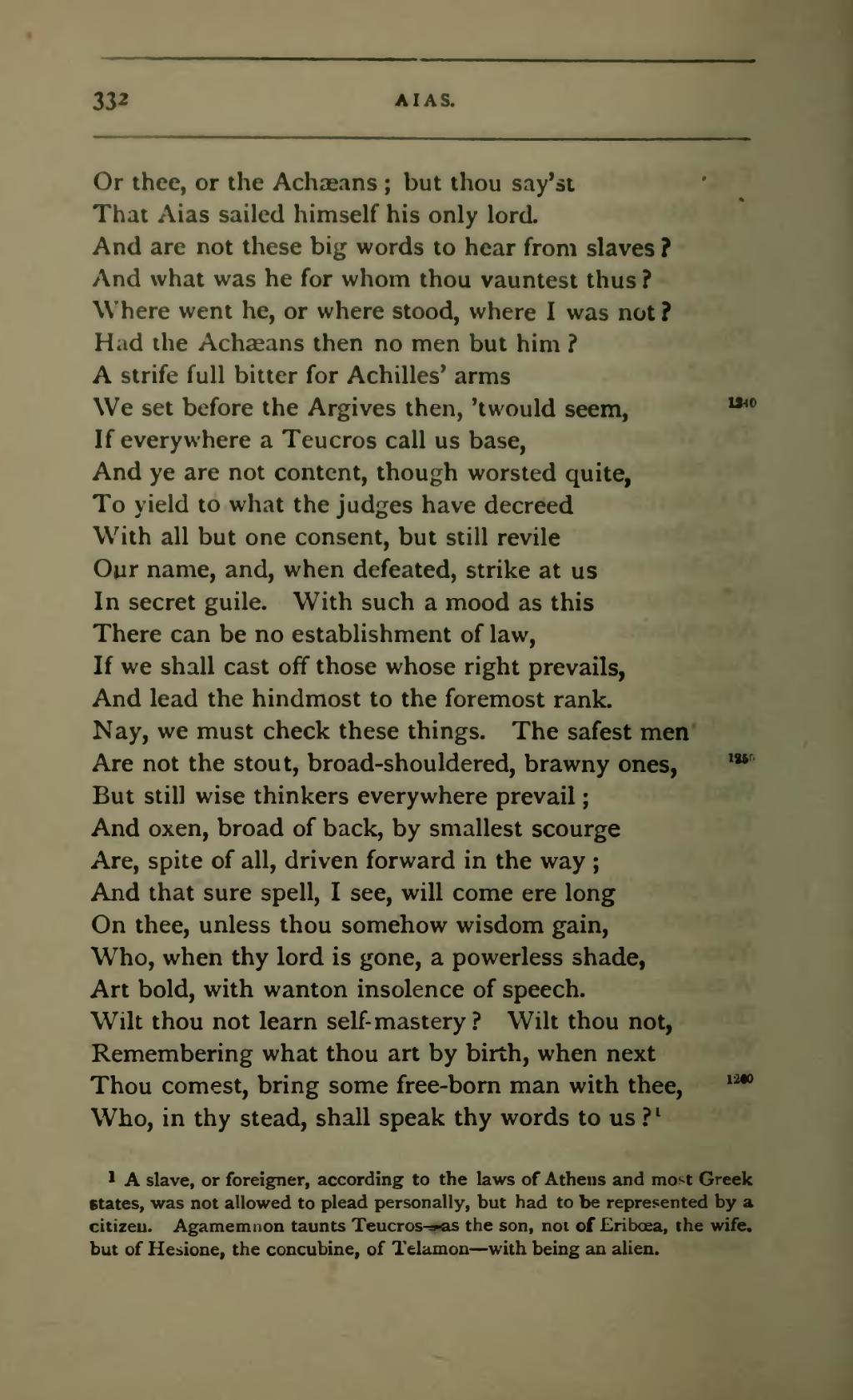Or thee, or the Achæans; but thou say'st
That Aias sailed himself his only lord.
And are not these big words to hear from slaves?
And what was he for whom thou vauntest thus?
Where went he, or where stood, where I was not?
Had the Achæans then no men but him?
A strife full bitter for Achilles' arms
We set before the Argives then, 'twould seem,1240
If everywhere a Teucros call us base,
And ye are not content, though worsted quite,
To yield to what the judges have decreed
With all but one consent, but still revile
Our name, and, when defeated, strike at us
In secret guile. With such a mood as this
There can be no establishment of law,
If we shall cast off those whose right prevails,
And lead the hindmost to the foremost rank.
Nay, we must check these things. The safest men
Are not the stout, broad-shouldered, brawny ones,1250
But still wise thinkers everywhere prevail;
And oxen, broad of back, by smallest scourge
Are, spite of all, driven forward in the way;
And that sure spell, I see, will come ere long
On thee, unless thou somehow wisdom gain,
Who, when thy lord is gone, a powerless shade,
Art bold, with wanton insolence of speech.
Wilt thou not learn self-mastery? Wilt thou not,
Remembering what thou art by birth, when next
Thou comest, bring some free-born man with thee,1260
Who, in thy stead, shall speak thy words to us?[1]
- ↑ A slave, or foreigner, according to the laws of Athens and most Greek States, was not allowed to plead personally, but had to be represented by a citizen. Agamemnon taunts Teucros—as the son, not of Eribœa, the wife, but of Hesione, the concubine, of Telamon—with being an alien.
